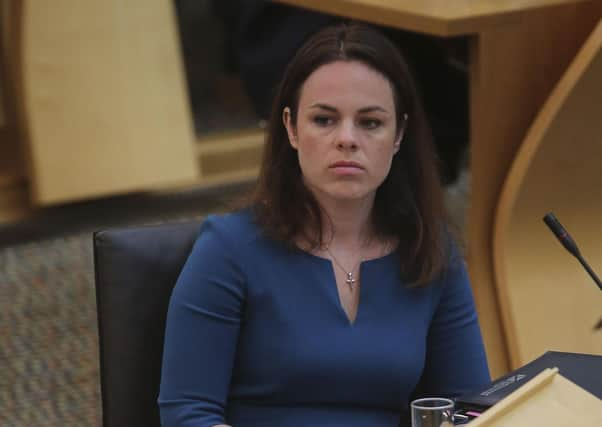Scotland’s public spending deficit is key independence issue – Scotsman comment
This article contains affiliate links. We may earn a small commission on items purchased through this article, but that does not affect our editorial judgement.


News that Scotland spent £15.1 billion more on public services than was actually raised in taxes will make uncomfortable reading for the Scottish Government.
According to its own ‘GERS’ figures on revenue and expenditure, an estimated £81bn was spent on the public sector in Scotland last year, while taxes totalled £65.9bn.
Advertisement
Hide AdAdvertisement
Hide AdHowever, it would be a mistake to believe this is a sign that Scotland’s economy is in disarray – the figure for tax revenue is actually a record despite a fall in receipts from North Sea oil and gas.
Instead, it is more an indication of just how wealthy London and the surrounding areas have become. As unionists were quick to point out, some of that wealth is shared out to other parts of the UK, but Scotland’s public spending deficit – per head of population for the sake of comparison – is actually lower than that of the north of England, Wales and Northern Ireland.
Responding to the figures – which relate to the year to April, taking in just a short period of the lockdown – Finance Secretary Kate Forbes said an independent Scotland “would have the power to make different choices, with different economic budgetary results”.
This is true, but we need more detail about those “different choices”; the Scottish Government needs to build on the openness and attention to detail displayed in the 2018 report by the Sustainable Growth Commission, set up by Nicola Sturgeon.
This was a decent start to look at the finances of an independent Scotland and, importantly, it did not seek to claim that our fortunes would be suddenly be transformed for the better.
The Commission’s chair Andrew Wilson even stressed: “It is important that independence must never be seen as a magic wand or quick and easy step to success. Indeed, there is no pot of gold, black or otherwise, at the foot of the independence rainbow.”
The report suggested a target to reduce the deficit to below three per cent of GDP within five to ten years – the latest figure is 8.6 per cent – by keeping public spending “significantly less than GDP growth”. At the time, some unionist politicians suggested this meant that independence would lead to a decade of austerity.
And it is clear that Scotland’s public spending deficit – or, in other words, the “Union dividend” – will be a main plank of the attacks on the SNP in the run-up to next year’s Holyrood elections because it is one of the most compelling reasons for Scotland to stay within the UK.
Advertisement
Hide AdAdvertisement
Hide AdSome in the SNP might seek to gloss over this issue and rely on the current UK Government’s relative unpopularity in Scotland, discontent over Brexit and nationalist sentiment, but this would do a disservice to democracy and the Scottish people. For many voters, it is a key issue and one that must be addressed if they are to make an informed choice.
A full and frank discussion about what deficit reduction would mean for public spending on health, education and other important sectors might provide ammunition for unionists and could put off some potential SNP supporters, but it could also persuade others who currently view independence as too risky that the costs are known and are outweighed by the benefits.
This is a crucial debate and one that both sides must fully engage in.
A message from the Editor:
Thank you for reading this article on our website. While I have your attention, I also have an important request to make of you.
With the coronavirus lockdown having a major impact on many of our advertisers - and consequently the revenue we receive - we are more reliant than ever on you taking out a digital subscription.
Subscribe to scotsman.com and enjoy unlimited access to Scottish news and information online and on our app. With a digital subscription, you can read more than 5 articles, see fewer ads, enjoy faster load times, and get access to exclusive newsletters and content. Visit www.scotsman.com/subscriptions now to sign up.
Our journalism costs money and we rely on advertising, print and digital revenues to help to support them. By supporting us, we are able to support you in providing trusted, fact-checked content for this website.
Joy Yates
Editorial Director
Comments
Want to join the conversation? Please or to comment on this article.